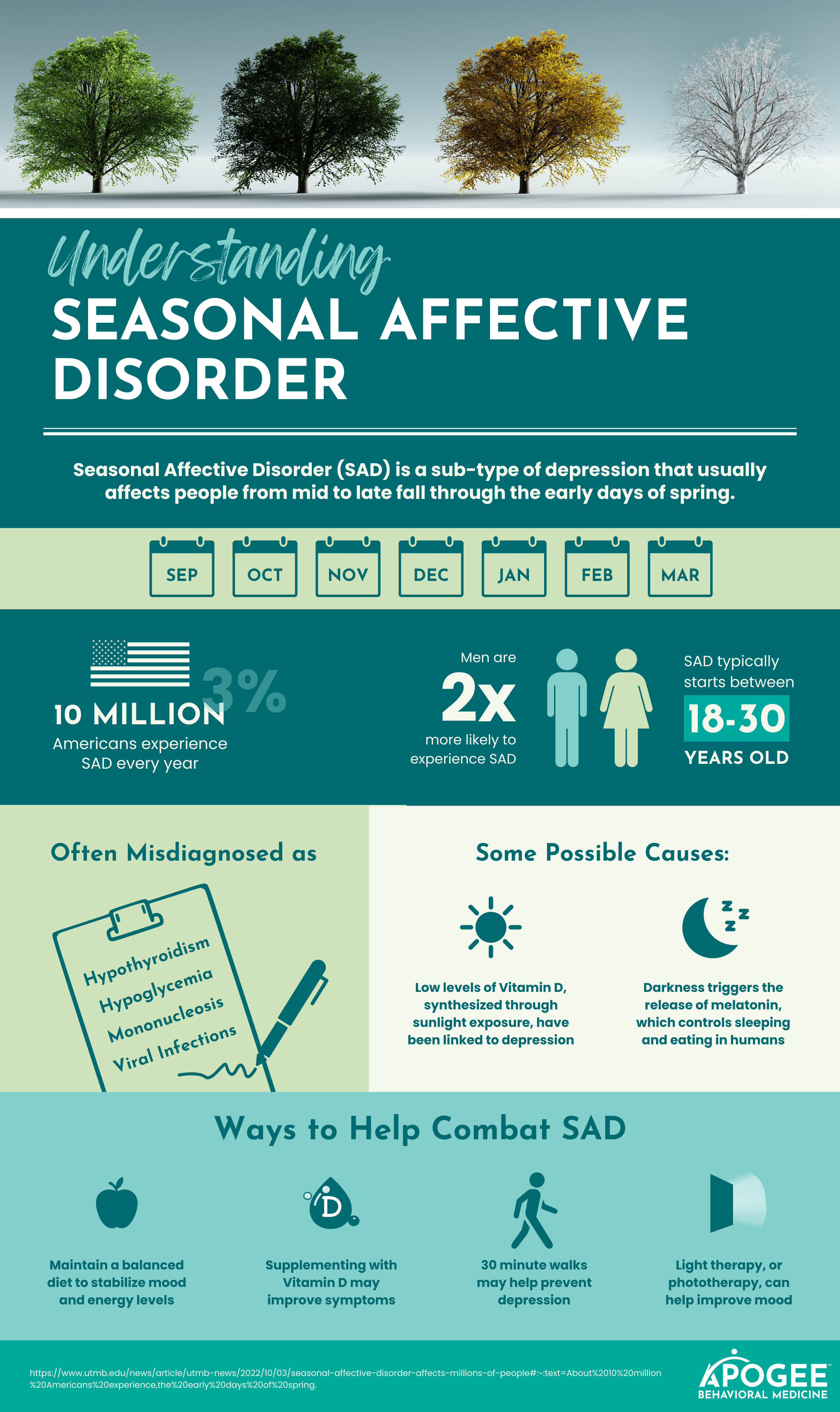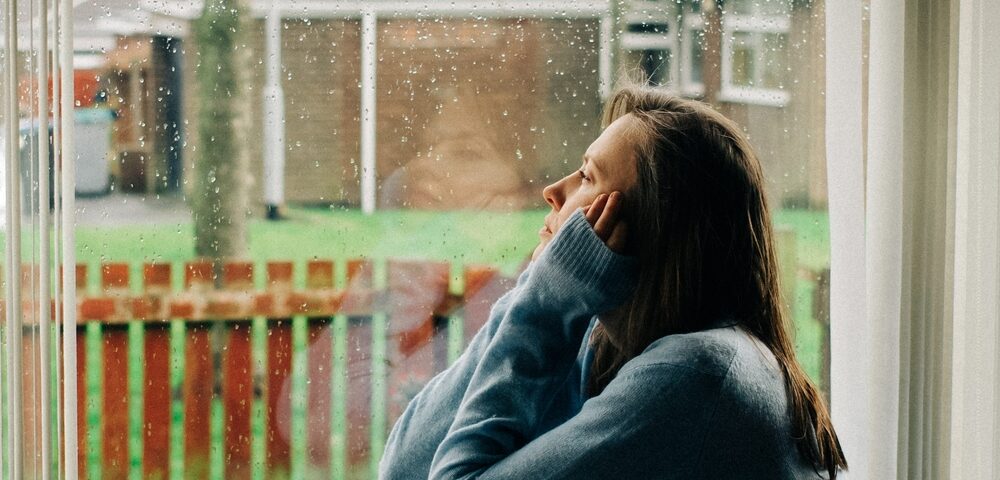
The Benefits of Therapy: How Counseling Can Improve Your Mental Health
December 17, 2024
The 5 Warning Signs of Eating Disorders
January 15, 2025Seasonal Affective Disorder (SAD) is a major depressive episode that corresponds with a time of the year. 5% of adults suffer from SAD and it may last up to 40% of the year. It is a clinical diagnosis and it can be debilitating to those who suffer from it. Imagine living your life regularly only 60% of the year. There are physiological factors that are related to Seasonal Affective Disorder and social factors as well. Like other depressive disorders, SAD varies widely from case to case. Understanding what it is, if there are risk factors, and identifying triggers helps those who are at risk get ahead of the symptoms and manage the seasons with more normality.
What is Seasonal Affective Disorder (SAD)
This is a type of depression occurring during specific seasons, most often in fall and winter when daylight hours are shorter. Those in the northern states suffer more from SAD, where the seasons are more pronounced. The lack of sunlight disrupts the internal clock, serotonin levels, and melatonin production which help regulate mood and sleep. These are physiological factors that can be combated with lifestyle changes, supplements, and exercise. Other factors are seasonal. When you have families coming together for Thanksgiving and Christmas, those who have suffered trauma or whose families are not close may suffer from the social messaging around the season.
Did you know: 25% of bipolar sufferers also suffer from SAD?
Beyond the Blues
Seasonal Affective Disorder is a major depressive disorder. It is beyond minor mood changes that accompany the changing of the seasons. There is much lore around the changing of the seasons from gaining a bit of weight over the holidays to generally not being the fittest. After all, these are the harvest and hibernation months for animals, and we are no exception. Where SAD is concerned the symptoms are much more pronounced and can be very serious and debilitating if left untreated.
Symptoms of Seasonal Affective Disorder:
- Low energy or fatigue
- Difficulty concentrating, making decisions, thinking
- Feelings of sadness or hopelessness
- Loss of interest in activities
- Changes in activity such as pacing, hand wringing, or slowed and increased pace of speech
- Changes in sleep patterns, excessive sleeping or insomnia
- Appetite changes can include binge eating.
- Weight gain
- Social withdrawal
Managing Seasonal Affective Disorder
With the right treatment, SAD can be a manageable condition. However, the therapies differ due to the gradual disappearance in cases with the change of the season. Light therapy is effective and involves sitting in front of a box that emits bright light, without harmful UV rays, for 20 minutes or more during winter. You can expect to experience improvement within only one to two weeks of treatment. Because of the anticipated return of symptoms in late fall, some people may begin light therapy in early fall to prevent symptoms.
Cognitive behavior therapy (CBT) or talk therapy also can be effective in treating SAD. Psychiatrists may also prescribe antidepressant medications such as selective serotonin reuptake inhibitors (SSRIs) to treat SAD. Spending more time outside or arranging your home or office so that you are exposed to a window during the day are lifestyle changes that can also improve SAD symptoms, in addition to regular exercise, healthy eating, getting enough sleep, and staying active.

Just like other depression, it is essential to get a medical evaluation by trained professionals who can properly diagnose your symptoms. If you have a loved one who you believe suffers from SAD, awareness is key. Share this article or other resources in a non-judgemental way to encourage them to seek help. Each time we openly talk about these conditions, we normalize it for people to seek treatment and find remedies to SAD. If your depression is severe, consult a mental health professional or call the 988 Suicide & Crisis Lifeline, which provides 24/7 confidential support.
If you know you suffer from Seasonal Affective Disorder, there are also ways to get ahead of the season. An Apogee Behavioral Medicine professional can help you create a plan that starts antidepressants, creates a new routine, or builds coping mechanisms for triggers that make the seasons less scary and dark. Apogee Behavioral Medicine offers telehealth, which is an excellent option for those who suffer from SAD. Many times, we or someone we know is suffering in silence from SAD and is unaware that some medications and therapies can give them relief from these persistent and debilitating feelings to be able to lead 100% of the year with more stability. Our offices are safe havens and treat every SAD case individually and as a team. Contact us today, and do not go another season living with symptoms of Seasonal Affective Disorder.
